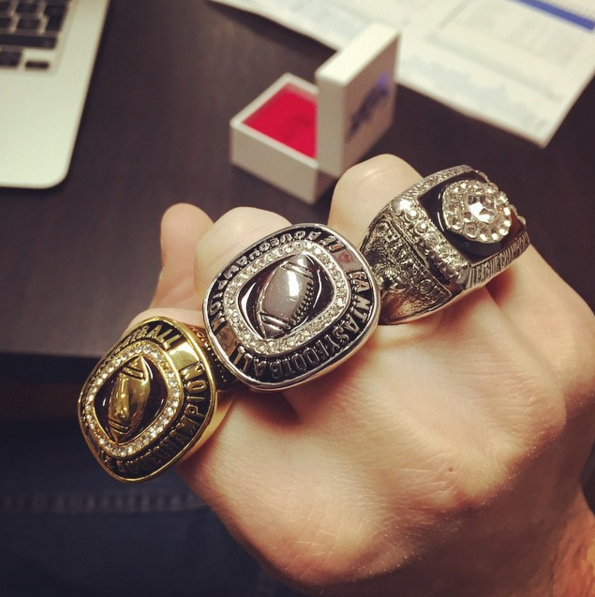
New York and Nevada have banned the sites, labeling the games illegal gambling — rulings that the sites are challenging. But many more states are working on legislation for upcoming sessions that would subject the games to oversight or licensing. Pennsylvania and California are leading the way. But other states, such as Colorado, Delaware, Georgia and Illinois, are interested, too.
The daily sites, an Internet outgrowth of the rotisserie sports leagues of the 1980s, emerged in the last few years and took off this year amid massive ad campaigns. Players will spend more than $3 billion this year in entry fees, said Chris Grove of Eilers Research, a gaming-industry market research firm. Of that, the sites will keep roughly 10 percent; the rest will be paid out as winnings.
"The uptick in state examination of the issue coincided with the beginning of football season when the ads became nonstop," said Jonathan Griffin, a gambling specialist for the National Conference of State Legislatures. "I expect this [coming] year we're going to see a significant number of states that are going to try to regulate it, which is directly related to the fact that they have become so well-known in the past months."
The daily sports sites work much like fantasy sports games in general: A player picks out a fantasy team of athletes from real sports teams (they don't have to play for the same team in real life). Each athlete has a salary number attached to him, and the cost of an entire team must fit under a certain salary cap. That prevents a daily player from picking a team of only all-stars.
Fantasy players score points if their selected athletes perform well by scoring touchdowns or rolling up yardage in football, accumulating hits in baseball or making baskets in basketball. The difference between daily fantasy sports and the old-fashioned, group-of-friends fantasy play is the winning payouts that can occur each day. Another big difference: As the sites stress in their ads, players can win hundreds of thousands of dollars every day.
For the states, the basic question is whether the daily contests are gambling, i.e., "games of chance," or not gambling, i.e., "games of skill. "The fantasy companies contend the games are based on skill — that players need to know a lot about a sport and how athletes compete if they are to win. Nevada and New York contend the daily fantasy contests are gambling — that luck plays a big role in who wins. For example, they say, it's bad luck when the star quarterback fractures his ribs and is out for the game, diminishing his value to the daily fantasy sports player.
In October, the Nevada Gaming Control Board issued a ruling calling for all daily fantasy sports websites to "cease and desist" operations in the state. As the sites stress in their ads, players can win hundreds of thousands of dollars every day.
More Articles
- Monetary Policy Report Prepared at the Federal Reserve Bank of Richmond, Expectations for Future Growth Were Mostly Unchanged
- National Institutes of Health Launches Home Test to Treat, a Pilot COVID-19 Telehealth Program; Berks County, PA, Is First Community to Join Partnership With Local Public Health Departments.
- Journalist's Resource: Religious Exemptions and Required Vaccines; Examining the Research
- Consumer Financial Protection Bureau (CFPB): Lenders Cannot Discriminate Based on Sexual Orientation or Gender Identity
- Kaiser Family Foundation (KFF), February 8th: This Early Stage of the COVID-19 Vaccine Roll-Out, Most Older Adults Have Not Yet Been Vaccinated As Supply Remains Limited
- The GAO Finds: Elder Financial Exploitation — The Fraudulent or IIlegal Use of An Older Adult's Funds or Property — Has Far-reaching Effects on Victims and Society
- Pew Trusts, Stateline: Poverty Grows Despite Economic Recovery; Left Behind
- How are States Prioritizing Who Will Get the COVID-19 Vaccine First? CDC’s Advisory Committee on Immunization Practices (ACIP) Released an Interim Recommendation For the Highest Priority Group
- Black Friday, Holiday Shopping and Beyond: Protect Your Identity Even Through the Means of Thwarting Dumpster Divers!
- The Electoral College: How America Chooses Its President; They’re Really Voting for the Slate of Electors Put Forward by the Political Party their Candidate Belongs To






